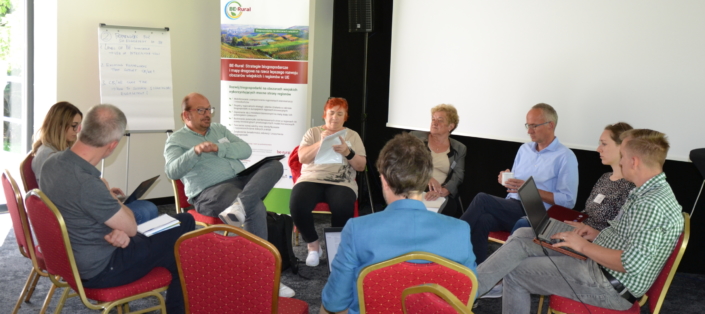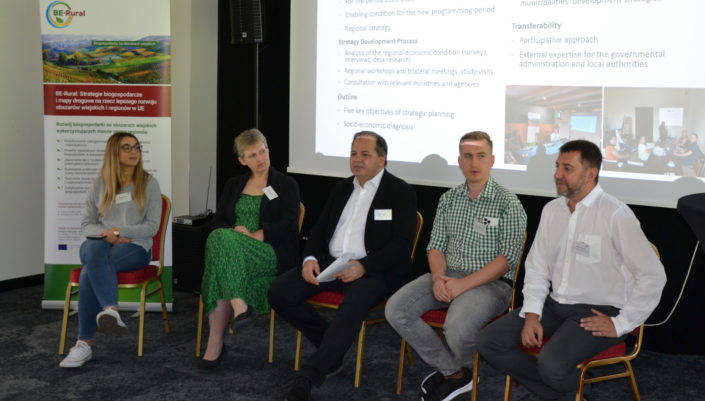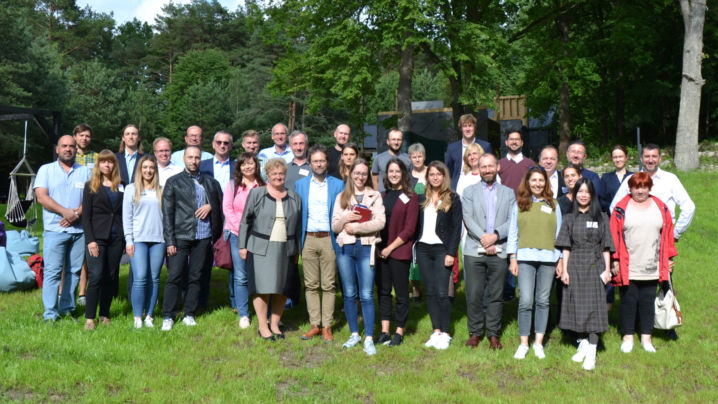BE-Rural Comes to an Eventful and Successful End: Final Conference and Key Project Outcomes
After 40 months, the BE-Rural project came to a close in its final conference in Frombork, Poland on July 11-14, 2022, under the title “Inspiring regional agendas for inclusive bioeconomies”. Around 40 project members and bioeconomy stakeholders travelled to Poland to review the activities and outputs of BE-Rural, discuss how the lessons learned can inform future initiatives and ongoing policy developments, and to outline concrete steps for future collaboration.

Through expert talks and dedicated working sessions, a key outcome of the conference was the co-development of the BE-Rural Policy Paper for the design and effective implementation of co-creation spaces in regional bioeconomies. Public and stakeholder engagement has a long history in European research and policy, and central to BE-Rural’s vision was the application of a variety of participatory tools. A comprehensive evaluation of the project’s engagement activities identified key lessons and helped to form the basis of the policy paper.
In addition to these final project outcomes, three policy briefs relevant for different governmental levels provide guidance on funding for bio-based business models, the ecological boundaries framing the bioeconomy in rural regions, and the relevance of bioeconomy for Pre-Accession Assistance projects in the Western Balkans.
While the bioeconomy carries great potential for achieving various policy aims related to sustainability, its suitability is not intrinsic and requires the capacity to assess its environmental impact. Over the course of the project, the need arose to develop a BE-Rural Sustainability Screening that supports decision-makers in incorporating considerations of ecological limits into their regional bioeconomy strategies and roadmaps.

Looking back, the BE-Rural project leaves behind a wealth of outputs and policy guidance on the development of regional bioeconomy strategies and roadmaps. While much has been accomplished, great potential remains to be tapped. In order to stay connected and keep facilitating knowledge exchange amongst the regions after the end of the project, BE-Rural launched a Network of Knowledge (Nok), an informal group open to all bioeconomy stakeholders interested in learning from others and exchanging on experiences in the design and implementation of bioeconomy strategies and bio-based business models, among others.

